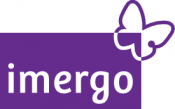The hazards of unrealistic performance expectations.
Risk Principle(s): Unrealistic Expectations; Ethical Risk; Pressure-Induced Misconduct
Key Lessons: Unrealistic goals foster fraud, corner-cutting, and burnout, eroding ethical standards. Sustainable performance demands realistic targets and a clear ethical compass to prevent misconduct under pressure.

In the rich tapestry of ancient folklore, certain tales transcend mere entertainment, offering profound and timeless insights into human nature and its consequences. These narratives, often passed down through generations, serve as potent allegories that illuminate the complex dynamics of modern risk management. They underscore how seemingly simple ambitions, when unchecked by realism or ethics, can set in motion a chain of events fraught with danger.
At Imergo, we champion the power of storytelling to embed essential risk literacy and foster organisational cultures that are not only ambitious and results-driven but also profoundly aware of the ethical landscapes they navigate. Let’s explore a classic fairy tale that provides a stark warning about the unseen costs of impossible demands and the ethical tightropes individuals are forced to walk under extreme pressure.
The myth of Rumpelstiltskin: The impossible task
The familiar tale of Rumpelstiltskin begins with a miller, driven by ambition and perhaps a touch of desperation or fear of a tyrannical king. To impress the monarch, he foolishly boasts that his daughter possesses an extraordinary, indeed impossible, skill: the ability to spin straw into glistening gold. Intrigued and greedy, the King immediately locks the daughter in a room filled with straw, demanding she spin it into gold by morning, or face dire consequences. Faced with an unachievable target, despair sets in. It is at this moment of intense pressure that a mysterious, magical, and ultimately malevolent imp, Rumpelstiltskin, appears, offering to perform the impossible task for a price. Each night, as the demand escalates, the daughter must pay more dearly, eventually promising her firstborn child. The relentless pursuit of an impossible target, born from a boast and fuelled by fear, sets in motion a chain of events that nearly costs the daughter her soul and future.
The risk lesson: The unseen costs of unrealistic targets
This compelling fable powerfully illustrates that unrealistic performance expectations, when imposed without a grounding in reality, can tragically result in inappropriate, unethical, or even desperate behaviour within an organisation. When targets are set without a clear understanding of capabilities, market realities, or available resources, or when immense, relentless pressure is placed on individuals or teams to achieve the impossible, it creates a fertile ground for significant enterprise risks:
- Fraud or misrepresentation to meet unattainable metrics: Just as the miller’s daughter was driven to seek Rumpelstiltskin’s deceptive help, employees under extreme, unrealistic pressure may resort to ‘spinning straw into gold’ through fraudulent accounting, misleading sales figures, or misrepresenting project progress. The drive to hit targets, however arbitrary, can override ethical boundaries, leading to scandals that damage reputation, incur massive fines, and erode stakeholder trust.
- Cutting corners on quality, safety, or compliance: When the focus shifts solely to ‘hitting the number’ at all costs, critical processes often suffer. This can manifest as sacrificing product quality to accelerate delivery, overlooking essential safety protocols to reduce expenses, or bending compliance rules to close deals. The long-term consequences — product failures, accidents, regulatory penalties, and a damaged brand — far outweigh any short-term gains.
- Increased employee burnout, stress and attrition: The relentless pursuit of an impossible goal is physically and mentally exhausting. Individuals and teams working under such pressure experience heightened stress, leading to decreased morale, increased errors, and eventually, high rates of employee burnout and attrition. The ‘human cost’ of unrealistic expectations is a significant operational and reputational risk, as talented individuals leave, and those who remain become less effective and more prone to mistakes.
- A “whatever It takes” mentality that erodes ethical standards: The atmosphere of desperation created by impossible demands can foster a culture where the end justifies any means. Ethical standards erode as individuals rationalise questionable actions as necessary for survival or success. This ‘whatever it takes’ mindset can permeate the entire organisation, creating systemic vulnerabilities to misconduct and making it challenging to rebuild an ethical compass once it has been compromised.
Beyond the spindle: Cultivating sustainable performance
The myth of Rumpelstiltskin serves as a potent reminder that while ambition is vital, it must always be tempered by realism, empathy and strong ethical governance. True leadership understands that sustainable performance requires:
- Realistic goal-setting: Targets must be grounded in data, capabilities and market conditions, allowing for challenge and adjustment.
- A clear ethical compass: Embedding ethical guidelines that guide behaviour even under pressure, ensuring that the means are as important as the end.
- Awareness of unintended pressure outcomes: Leaders must be acutely aware of how their demands can inadvertently breed misconduct and create pathways to unethical behaviour.
- Transparency and open dialogue: Fostering an environment where employees feel safe to voice concerns about unattainable targets or ethical dilemmas without fear of reprisal.
By internalising the lessons from Rumpelstiltskin, organisations can ensure that their pursuit of success does not inadvertently breed misconduct, protecting their integrity, their people, and their long-term viability.
